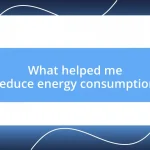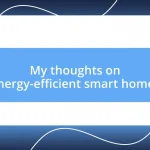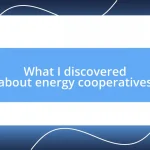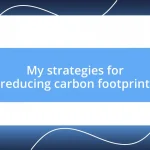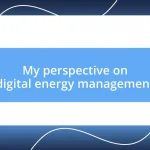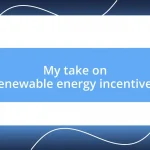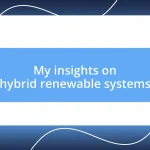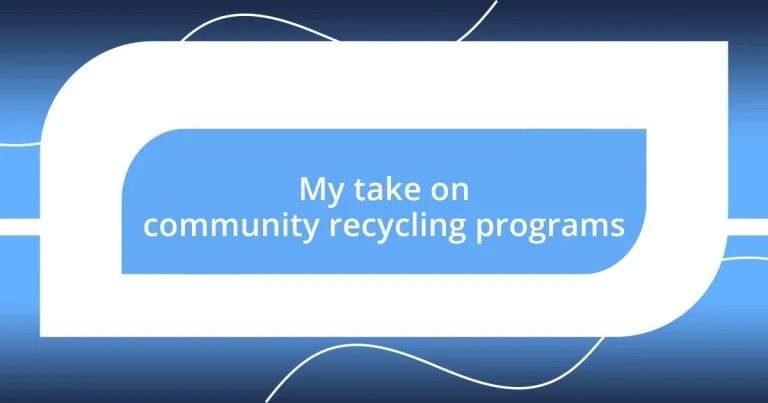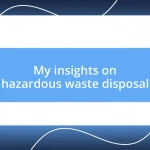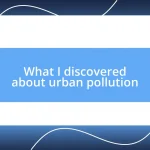Key takeaways:
- Community recycling programs enhance environmental awareness and foster a sense of belonging among residents, encouraging collective responsibility.
- Implementing best practices, such as knowing local recycling rules and engaging in community events, enhances the effectiveness of recycling efforts.
- Addressing challenges through education, creative engagement, and celebrating successes helps improve participation and strengthens community ties in recycling initiatives.
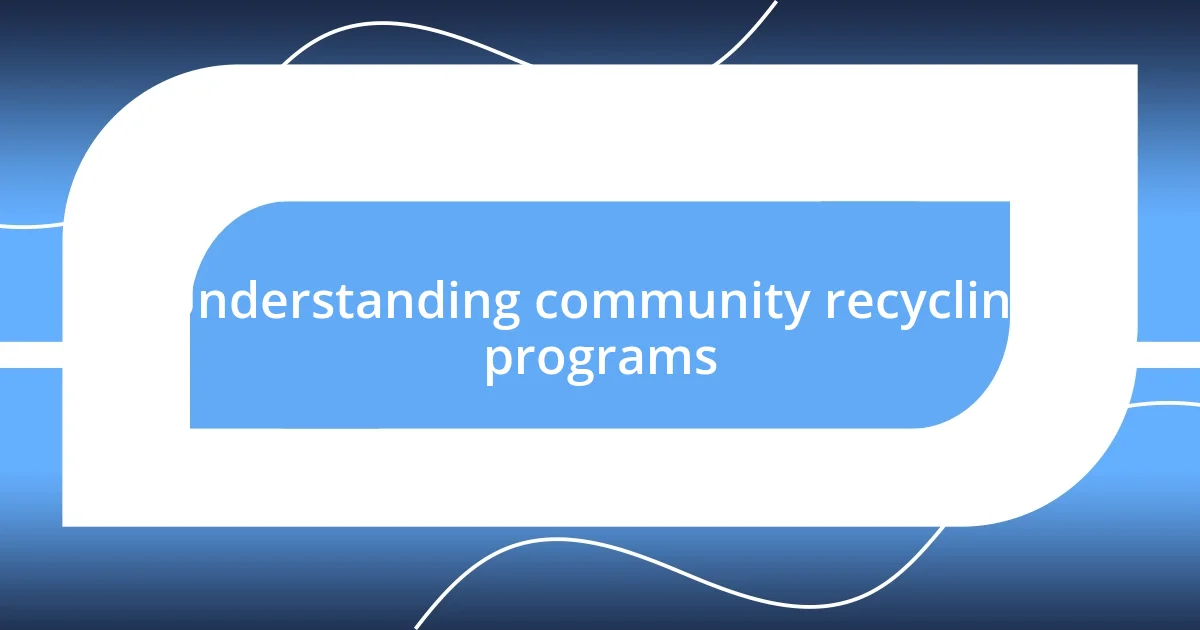
Understanding community recycling programs
Community recycling programs are designed to promote sustainability at a local level, making it easier for residents to dispose of materials responsibly. I recall the day I first participated in our neighborhood’s recycling initiative; I was surprised at how simple it felt to separate my plastics and papers. Have you ever thought about how often we toss things away without a second glance?
These programs often include detailed guidelines on what can be recycled, which helps reduce contamination—a common issue that impedes recycling efforts. When I first started recycling, I found the rules overwhelming, but once I learned the specifics, it became second nature. Isn’t it fascinating how knowledge empowers us to act more sustainably?
Moreover, community recycling initiatives foster a sense of belonging and collective responsibility. I remember attending a local event where families gathered to learn about recycling best practices. It felt like we were all in it together, striving for a healthier planet. Does participating in such initiatives inspire a deeper connection to your surroundings? It certainly did for me.
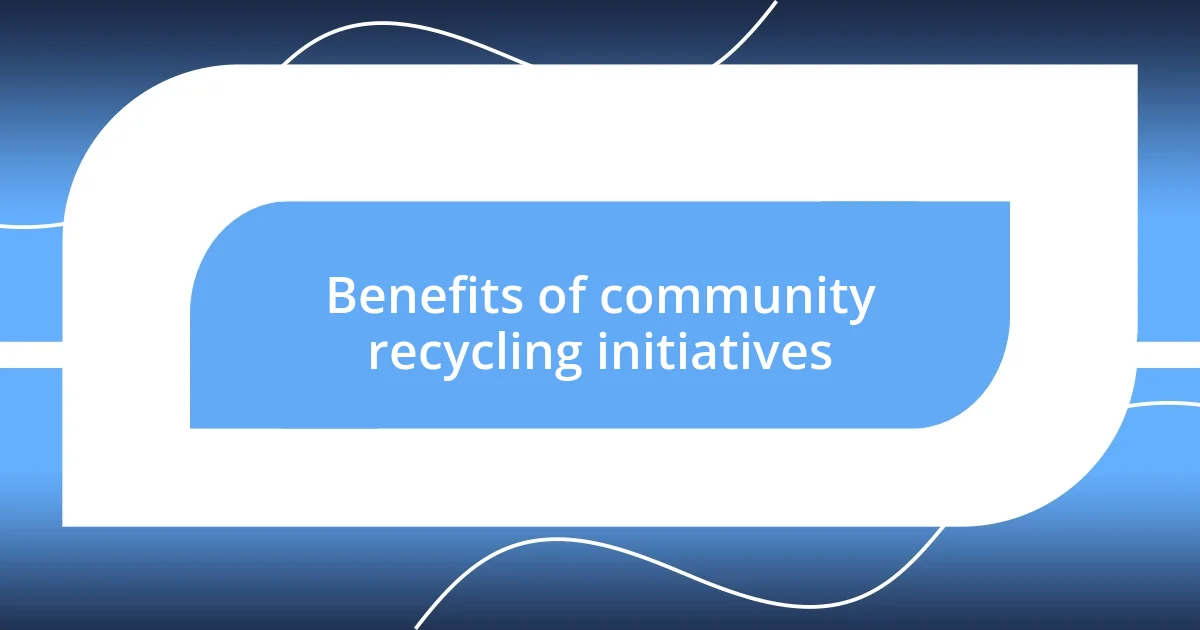
Benefits of community recycling initiatives
Community recycling initiatives have a profound impact on environmental awareness. I remember feeling truly uplifted after attending a workshop where we learned about the tangible benefits of recycling—how it saves energy and conserves natural resources. It made me rethink my daily habits; instead of tossing an item in the trash, I now consider its potential for a second life. What about you? Have you found yourself more mindful of your waste since joining a recycling program?
Beyond environmental benefits, these initiatives often bring communities closer together. One Saturday, I volunteered at a neighborhood recycling drive, and I was struck by the diverse faces of people dedicated to a common cause. It was heartwarming to see children eagerly helping their parents separate recyclables. This experience made me realize that working together can foster friendships and create a shared vision for a cleaner community.
Additionally, community recycling programs can lead to improved local economies. During a recent town meeting, I learned how successful recycling efforts have reduced expenses for waste management and created job opportunities in recycling facilities. It struck me that every bottle I recycled contributed to something larger, proving that our individual actions can indeed lead to community-wide benefits. Isn’t it rewarding to know that your small contributions can have a meaningful impact?
| Benefit | Description |
|---|---|
| Environmental Awareness | Increases knowledge about sustainable practices and reduces waste. |
| Community Building | Encourages interactions and friendships among residents passionate about recycling. |
| Economic Improvement | Lower waste management costs and new job opportunities in recycling sectors. |
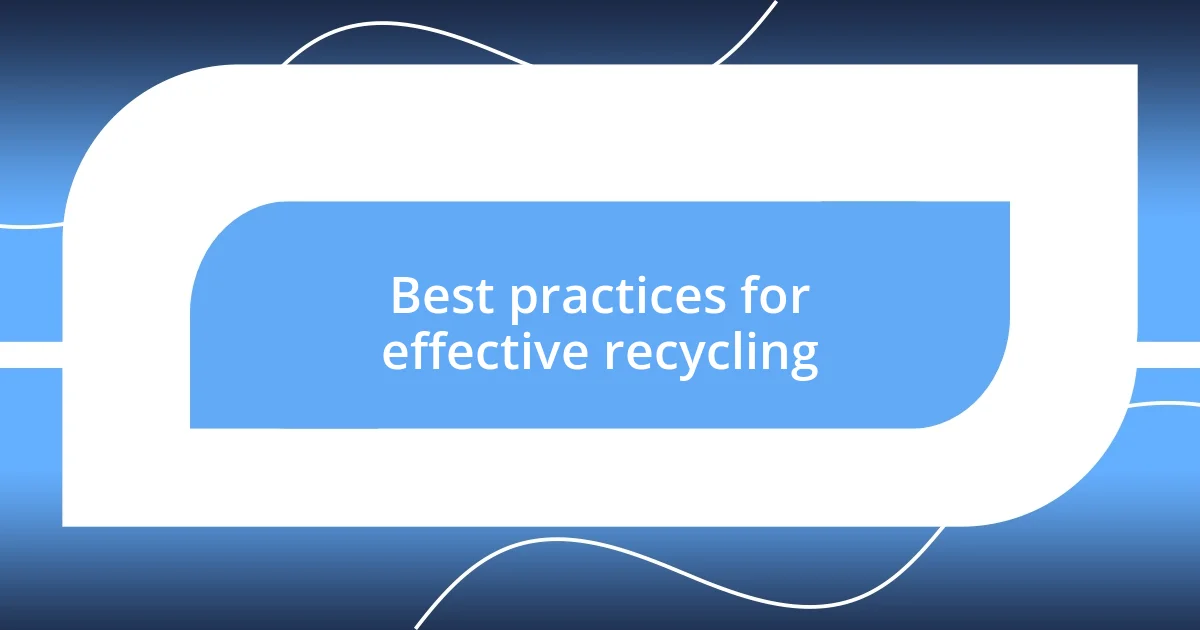
Best practices for effective recycling
Best practices for effective recycling are crucial for ensuring that our efforts truly make a difference. One important aspect is to stay informed about what can and cannot be recycled in your community. I vividly recall a time when I added a greasy pizza box to my recycling bin, only to learn later that it could contaminate the entire batch. This experience reinforced my belief that understanding local guidelines is key to successful recycling and cleaner outcomes.
Here are some best practices to keep in mind:
- Know Your Materials: Familiarize yourself with local recycling rules to avoid contamination.
- Clean and Dry: Rinse recyclables to remove food residue and ensure they are dry before tossing them in the bin.
- Sort Properly: Separate items into correct categories to expedite the recycling process.
- Educate Others: Share knowledge with family, friends, and neighbors to create a more conscientious community.
- Stay Engaged: Participate in local recycling events or workshops to continuously improve your understanding and advocacy.
By adopting these practices, I’ve found that recycling becomes more than just a chore; it transforms into a personal commitment, positively impacting my community and the environment. Each time I properly dispose of recyclables, I feel empowered, knowing I’m contributing to a sustainable future. Have you ever experienced a similar sense of pride in making a conscious choice?
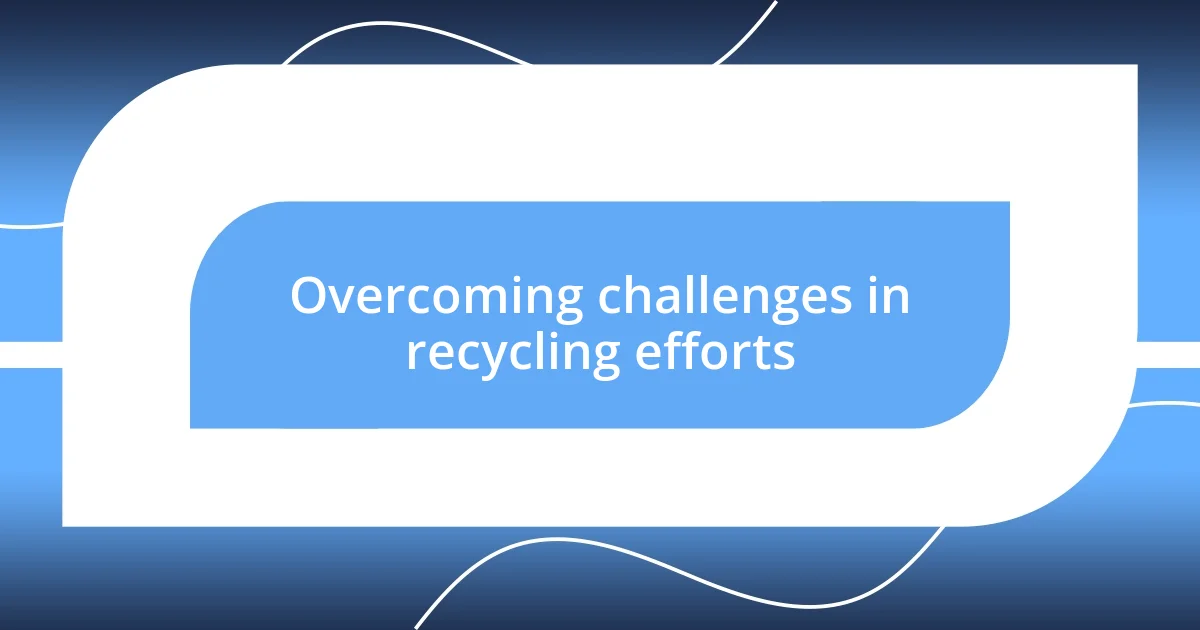
Overcoming challenges in recycling efforts
Overcoming challenges in recycling efforts often requires creative solutions and community engagement. I recall a neighborhood meeting where we brainstormed ideas to improve participation in our recycling program. Someone suggested a friendly competition, where blocks would compete to see who could collect the most recyclables. The excitement in the room was palpable, and it inspired a spirit of teamwork that translated into actual results. Isn’t it fascinating how a little competition can rally community members together?
One persistent challenge is education about recycling practices. I once participated in a community clean-up where I saw a significant number of residents unsure about labeling on containers. They often mistakenly thought containers marked “recyclable” were good to go without further inspection. This highlighted the need for continuous outreach and educational workshops. Have you noticed how much easier it becomes to recycle when you truly understand what can be accepted?
Another obstacle I’ve encountered is the inconsistency of recycling services. In my town, changes in local government disrupted regular pickup schedules, leaving many residents feeling discouraged. To tackle this, our community organized informational sessions to clarify the schedule and adapt to changes. It’s amazing how resourceful people can be when they feel part of a solution, isn’t it? Encouraging communication and adaptability can often pave the way for a more resilient recycling program.
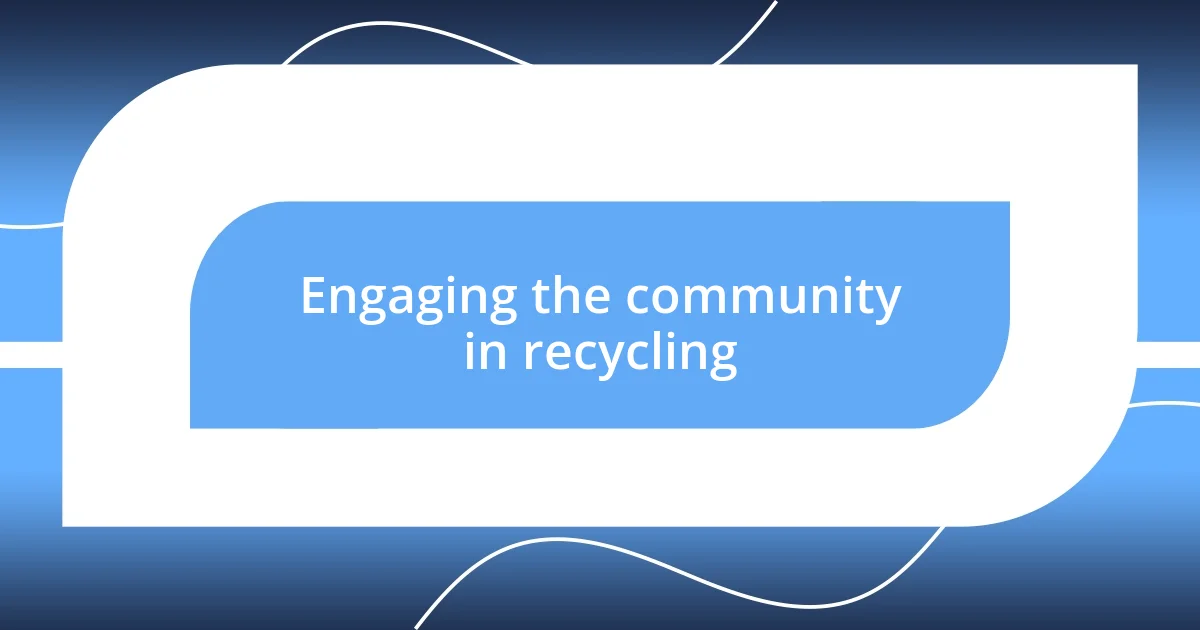
Engaging the community in recycling
Engaging the community in recycling can take many forms, and I’ve seen firsthand how creative approaches can spark interest. A local artist once proposed an initiative where discarded materials were transformed into art installations. This project not only beautified our neighborhood but also sparked conversations about recycling. I still remember the buzz of excitement as families came together to contribute their items, all while learning about the importance of reusing materials. Have you ever witnessed art breathe new life into a community spirit?
Another effective method is organizing community clean-up days with a recycling focus. I participated in one such event where we not only picked up litter but also set up stations for sorting recyclables. The camaraderie that day was incredible; neighbors who hadn’t previously interacted were sharing stories and tips while sorting plastic from paper. It made me realize that those little moments of engagement can build connections and forge a collective commitment to recycling. How rewarding is it to see a shared goal unite people?
To sustain interest, it’s essential to celebrate successes, no matter how small. After one of our recycling drives, we held a fun gathering where we discussed our impact—total weight recycled and the reduction of landfill waste. Seeing those tangible results sparked pride in our contributions and motivated us to continue. When was the last time you felt that surge of enthusiasm from a community gathering? Recognizing achievements can reinforce our commitment to recycling, ensuring it remains a community-wide effort rather than just an individual task.



